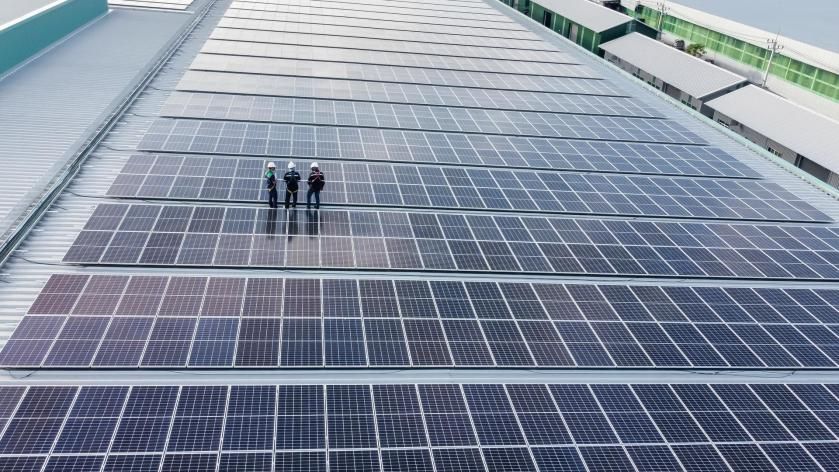Hydrogen law, regulations & strategy in Bulgaria
Explore reliable legal information about hydrogen energy in Bulgaria

Authors
jurisdiction
CURRENT STATUS OF HYDROGEN PROJECTS
The Bulgarian government designed (and updated in 2024) the Energy and Climate Integrated Plan (the “Integrated Plan”), in which it set out several main areas of development related to transport and energy sectors (including transmission and storage).
One of the major success stories and driving forces in developing the hydrogen sector is the participation and winning of EU funding for project ZAHYR. This project aims to secure a hydrogen valley in Stara Zagora to substantially decrease the CO2 emissions from the existing coal power plants in the region (Maritsa East lignite-fired plants). In addition, a new solar PV plant is planned in the area to power the hydrogen electrolyser. The hydrogen will be used in transport and energy applications, including city buses and public lighting and is structured around delivering Bulgaria’s aims to apply the same approach to two other regions: Kyustendil and Pernik (being associated with operational CO2).
The Bulgarian government is also focusing on expanding the gas transmission system to accommodate hydrogen transmission needs (up to 10% hydrogen via the installation of smart systems into the existing infrastructure), including cross-border transport (via cross-border clusters with Romania and Greece). One of these projects (Н2 Interconnection Bulgaria-Greece) is to be led by Bulgartransgaz and is expected to start operation by the end of 2029.
The Bulgarian policy on hydrogen development is also supported by local grid transmission operators. As such, the national electricity transmission system operator (“ESO”) participates in the CARMEN project. This project aims to bolster the electricity transmission system, including facilitating green hydrogen production.
The Integrated Plan puts some numbers on the government’s targets: by 2030, the energy mix of the country is expected to use 1,000 tonnes of oil equivalent (toe) hydrogen, rising to 9,000 toe in 2040. The Integrated Plan also provides for investments (as part of the EU fund for recovery) into the construction and development of 55MW electrolysis, production of 7,800 tonnes of green hydrogen on a yearly basis, construction of hydrogen transmission infrastructure and low carbon fuels. The total investment is expected to amount to BGN 136.9 million (with BGN 68.5 million proposed as private co-financing) and completion is scheduled for 2026.
Currently, Bulgaria neither holds centralised hydrogen production nor hydrogen charging station infrastructure. The development plan provides that the first charging stations shall be located near renewable energy production facilities. However, various local enterprises already use hydrogen in their production, such as Lukoil Neftochim Burgas (the biggest oil refinery in Southeast Bulgaria), which is currently using 80,000 t/p.y. of hydrogen and is planning to increase this in the coming years. Another operational project using green hydrogen (through electrolysis) is the glass factory of Pasabahce Bulgaria, located in Targovishte.
Bulgaria is taking part in Next Generation EU, thereby looking to increase the use of renewable energy by 42.5% in 2030. Currently, under the Bulgarian legal system, hydrogen is broadly treated like other gases. As hydrogen is expected to be the main source of energy in the future, this is likely to change.
RECENT POLICY CHANGES
On the legislative side, the Bulgarian government undertook actions to regulate hydrogen projects. It started with introducing definitions of “green hydrogen” into the Bulgarian Energy Act (the “EA”) and, in 2023, regulating the production and consumption of green hydrogen under the Energy from Renewable Sources Act (the “ERSA”). Based on these changes, the government introduced the new ordinance on guarantees of origin in terms of renewable energy in April 2024. The ordinance aims to regulate the issuance of guarantees of origin for green hydrogen, making them more easily bankable. While ERSA does not provide for a full framework on hydrogen usage, it focuses on the development of green hydrogen in the transport sector. Green hydrogen production is encouraged by way of guaranteed transmission and distribution, transparency on prices and guaranteed purchase by the public supplier and/or end customer.
Currently, no further changes have been introduced in the transport sector and the ordinance on hydrogen charging stations adopted in 2021 remains unchanged.
In April 2023, the Bulgarian Council of Ministers adopted a national hydrogen map on the development of hydrogen technologies to cover the period of 2023-2026 (the “Hydrogen Map”). According to the business and the Hydrogen Map analysis, the ordinance should be updated in order to reflect the developing markets and local hurdles. Under its national plans for development as presented to the EU, the Bulgarian government has committed to register 120 hydrogen-fuelled vehicles by 2025 with 5 charging stations and 599 more vehicles by 2030.
As part of the National Plan for Recovery, Bulgaria will change the trading rules to accommodate the needs of the hydrogen market and the “one-stop” administrative services. These are planned to launch by the end of 2024.
RECENT DEVELOPMENTS
Development 1
One of the major accomplishments and developments on the market is the receipt of a grant from the EU for the development of a hydrogen valley. Project ZAHYR is ranked amongst the top funded projects of the EU commission with net EU funding of EUR 7,999,785.67 and a total cost of EUR 17,322,791.93. Please see comments above on the details of Project ZAHYR. The project began on 1 January 2024 and is due to complete by 31 December 2028. The project is coordinated by the Trakiyski University.
Stara Zagora has also been chosen to showcase the versatility and potential of green hydrogen as a means to improve air quality in the city, reduce CO2 emissions for energy production and mobility applications, and generate economic welfare. It will serve as a showcase to other regions such as Kyustendil and Pernik, which also share in the need to decrease CO2 emissions.
ZAHYR will install and demonstrate two electrolysers with a combined installed power of 5MW, to be run on green electricity produced in a new 20MW PV plant. The hydrogen produced will be used in various transport and energy applications. The applications include the installation of two hydrogen refuelling stations to serve a fleet of ten city buses, 2 heavy transport trucks and 2 light-duty vehicles. A bi-fuel gas turbine will be installed in which blending limits between hydrogen and natural gas will be tested. A 1MW fuel cell at Stara Zagora will provide the municipality’s public night lighting, showcasing how this municipality can become net zero emission. Finally, a broad training and education programme will be set up resulting in a master’s degree in low carbon technologies and hydrogen technology in particular (such as processes of electrolysis, scaling, integration of technology, etc.) to enhance national expertise. The Hydrogen Valley Development Group will be responsible for the implementation of the hydrogen projects from various aspects such as coordination of project implementation, monitoring of legislative changes and financing, etc.
Development 2
As mentioned above, the national hydrogen map on the hydrogen technologies development (the “Hydrogen Map”) has been developed for the 2023-2026 period. The Hydrogen Map has been prepared to illustrate the steps to be undertaken by the local government and authorities to address the EU framework and targets and the increasing need for alternative resources to decrease CO2 emissions. The Hydrogen Map has four main operative targets:
- Establishing technologies for production, transportation and usage of green hydrogen in the industry, energy and transport sectors;
- Innovation and research;
- Increasing employment and education (TeachHy projects) in the area as well as developing the administrative environment to help project development; and
- EU and cross-border collaboration.
These targets depend on the designing of an effective and adequate regulatory framework.
The Hydrogen Map lists the ZAHYR project as one of the main objectives of development, as well as developing the regions of Kyustendil and Pernik. As part of the targeted areas, Bulgaria is already taking steps towards increasing qualified personnel by participating in the qualification and requalification initiatives being GreenSkill4H2 and KICstar4H2.
The implementation of the Hydrogen Map is coordinated within the Ministry of Innovation and Development and the Working Hydrogen Group, a group of experts who are set to monitor the changes in legislation on local and EU levels.
Besides the Hydrogen Map, the Bulgarian Council of Ministers also adopted the Innovation Strategy for Intelligent Signalisation 2021-2027, which aims to reflect the hydrogen technologies and the package of measures for financing innovation in the period 2021-2027. The strategy refers to the development of innovative technologies in various sectors, including the operation of hydrogen installations.
Development 3
On 19 January 2024, Bulgaria, Greece and Romania signed a tripartite engagement for the development of cross-border projects in offshore wind, hydrogen from renewable energy sources (“RES”), and e-vehicle charging infrastructure. One of the main aspects of the project is the establishment of a hydrogen from RES cluster.
As part of the initiative, Bulgartransgaz is working on expanding the transmission infrastructure to secure cross-border connection with Romania and Greece (part of REPowerEU). The infrastructure aims at transporting 100% of hydrogen in the following regions:
- Kozloduy (with a length of 240km DN 1000 and 2 compressing stations with a capacity of 48MW);
- Ruse (with a length of 330km DN 1000 and 3 compressing stations with a capacity of 72MW); and
- Kardam with a length of 480km DN 1000 and 3 compressing stations and a total capacity of 72MW.
These lines are designated to go to Sofia and continue to Greece via Sofia – Kulata. The indicative timeline for completion of the interconnection of Bulgaria with Romania is 2032, while the connection to Greece is due by the end of 2029 (with an estimated investment price of EUR 860 million).
The Greek pipeline system is planned to be made up of 250 km of length of pipeline to connect with the Greek border at Kulata/Sidirokastro, where it will connect to the Greek operator DESFA. This is planned to be the transportation corridor of hydrogen in South East and Central Europe. The contractor in this project is Bulgartransgaz EAD and is listed in the First List of Projects of Common Interest (PCI) and Projects of Mutual Interest (PMI) for the EU published by the European Commission.





